Publications
Articles, publications, books, tools and multimedia features from the U.S. Institute of Peace provide the latest news, analysis, research findings, practitioner guides and reports, all related to the conflict zones and issues that are at the center of the Institute’s work to prevent and reduce violent conflict.
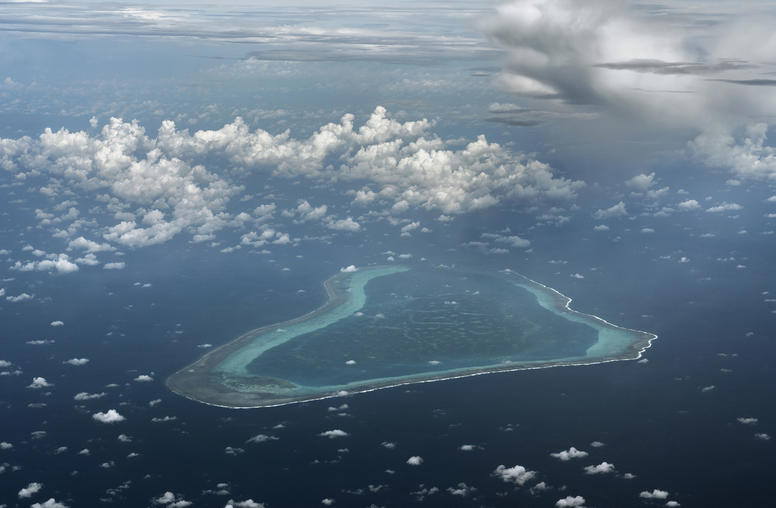
Tensions Rise as Washington Rejects Beijing’s Maritime Claims
Based on what Beijing calls “historic rights,” China claims vast swaths of the South China Sea, including waters and features also claimed by the Philippines, Vietnam, Malaysia, and Brunei. With no reference to international law, China’s “nine-dash-line” encompasses 80 percent of the South China Sea reaching as far south as more than 1,000 nautical miles from the China’s coast, within 50 nautical miles of Malaysia. Within these waters lie features occupied by China, the Philippines, Vietnam, Malaysia, and Taiwan, including three artificial islands that China built in 2012 and has since developed into military bases.
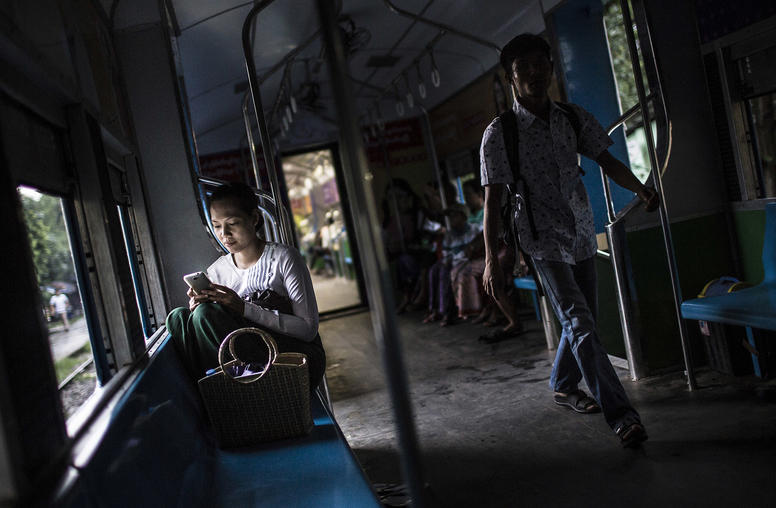
Myanmar: Transnational Networks Plan Digital Dodge in Casino Enclaves
The plans transnational crime groups have for Myanmar’s border region with Thailand are by no means easy to understand. Shards of information lie scattered across China, Myanmar, Cambodia, the Philippines, and Thailand. They appear in various languages in publicity videos on the internet, in business plans circulated on social media, and in white papers released by companies and individuals launching increasingly sophisticated schemes. The outline becomes clear, however, after cutting through denials and obfuscations, untangling local and international politics, and assembling the fragmentary data: A multinational cohort of individuals, linked to cross-border criminal activity, has allied with local armed groups in Myanmar to establish a base of operations beyond the reach of its civilian government. This creates an optimal environment to tap into the $25 billion-a-year illegal online gambling market in the People’s Republic of China.

Brian Harding on U.S.-China Competition in Southeast Asia
As the United States and China focus more on Southeast Asia, USIP’s Brian Harding says the region’s 10 diverse nations have “become a pretty impressive bloc … [they] realize that U.S.-China competition is here to stay and they’re trying to do their best to navigate it and have agency of their own.”

A New ‘Quartet’ for Israeli-Palestinian Peace
Good news for Israeli-Palestinian peacemaking seems rare, but this month’s diplomatic initiative by four states influential in Europe and the Middle East is a constructive development that should continue. On July 7, Egypt, France, Germany and Jordan joined to oppose Israel’s declared intent to annex territory that it has occupied since 1967. Vital actors, including Arab states and the European Union, have been unable to stop the march toward annexation and the attendant risks of renewed violence. Yet a partnership of key Arab and European states—the latest in a string of diplomatic “quartets” on the conflict—offers a foothold on which to build.
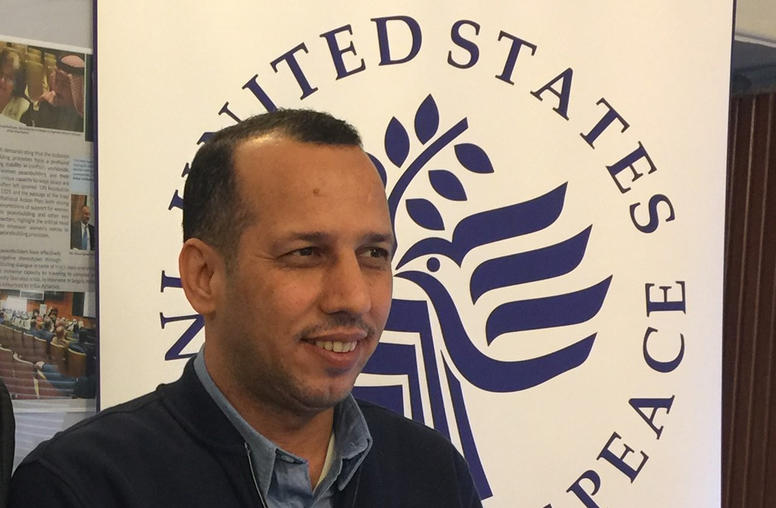
The Implications of the Assassination of Husham al-Hashimi
The assassination of our colleague and friend Husham al-Hashimi by unidentified gunmen in Iraq comes as a shock to those who knew him, and to those who did not. Not because assassinations in Iraq are unfamiliar, but rather for other reasons, the most important being Husham’s personality, his experience, ethics, and dedication to the cause of peace in his country; also because of the optimism felt by many after Mustafa al-Kadhimi took over as prime minister and the measures he undertook.
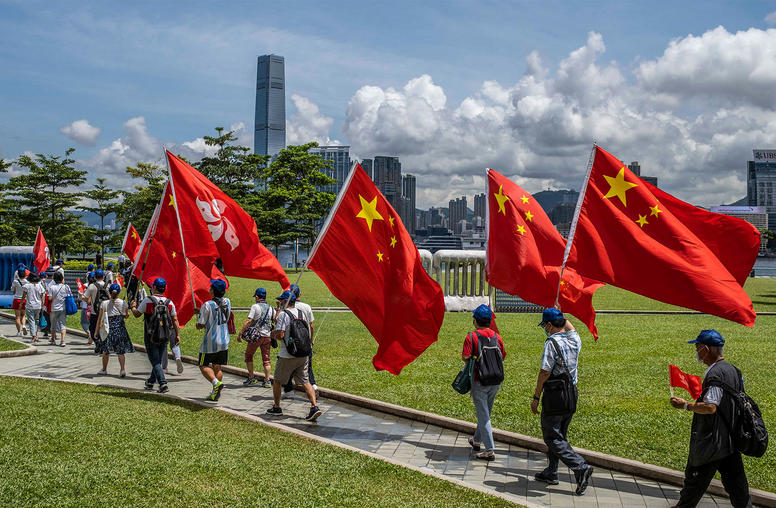
Beijing Builds Global Support for Draconian Hong Kong Law
China’s new national security legislation went into effect in Hong Kong late on June 30, giving Beijing new tools to control public discourse in the city, eliminating freedom of speech, mandating digital surveillance, and granting China extraterritorial powers to enforce the new law. In response, the United States has revoked Hong Kong’ special economic status and joined other democracies in condemning the law. Yet, a number of other countries have voiced their support for the legislation. By building a coalition of support for the new national security law, Beijing is not only tightening its grip on Hong Kong, but also trying to delegitimize critiques of China’s own domestic policies or system of government and strengthen global opposition to democratic values and the notion of universal human rights.
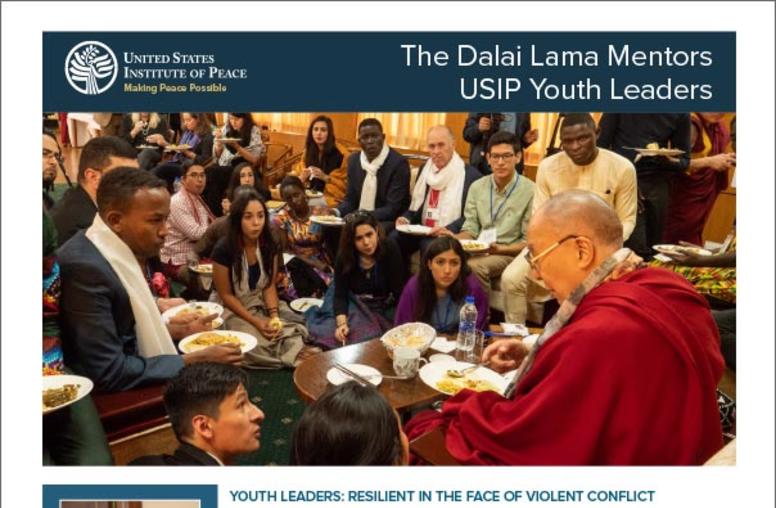
The Dalai Lama Mentors USIP Youth Leaders
Each year, the U.S. Institute of Peace gathers 28 youth leaders from countries confronting violent conflict to meet with His Holiness the 14th Dalai Lama in Dharamsala, India, where he encourages them in their efforts to build peace in their homelands. This annual dialogue is a partnership between USIP and the Dalai Lama, a global voice for peace and 1989 Nobel Peace Prize laureate. The project aims to strengthen the abilities of young people working to build peace in the world’s most violent regions.

Nancy Lindborg on the Women Building Peace Award Finalists
Women are often overlooked and underappreciated in peace processes. But USIP President and CEO Nancy Lindborg says the inaugural Women Building Peace Award will shine a light on women who have “dedicated their lives to doing the kind of work that reduces conflict and resolves violence, often in some of the toughest countries around the world.”
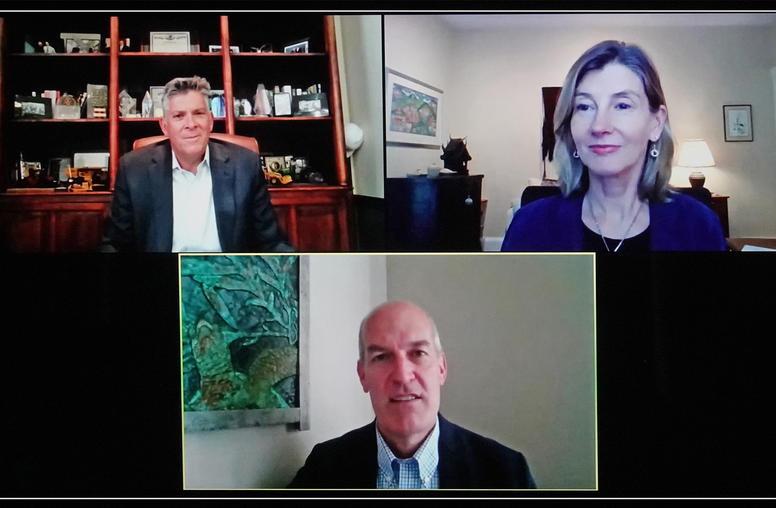
Partisan Lines Fade in Congress on China, Panel Chiefs Say
Bipartisan sentiment toward China has hardened over the past year in Congress, scrambling ideological lines as concerns grow more acute over democracy, trade, human rights, and national security, the co-chairs of the House U.S.-China Working Group said.

Andrew Wilder on the Latest from Afghanistan
After decades of conflict, Afghanistan is closer to a political settlement than ever before. But with new reports of Russian bounties on U.S. soldiers, USIP’s Andrew Wilder says there’s concern the issue “distracts from the bigger-picture need for the U.S. to continue to support the peace process.”